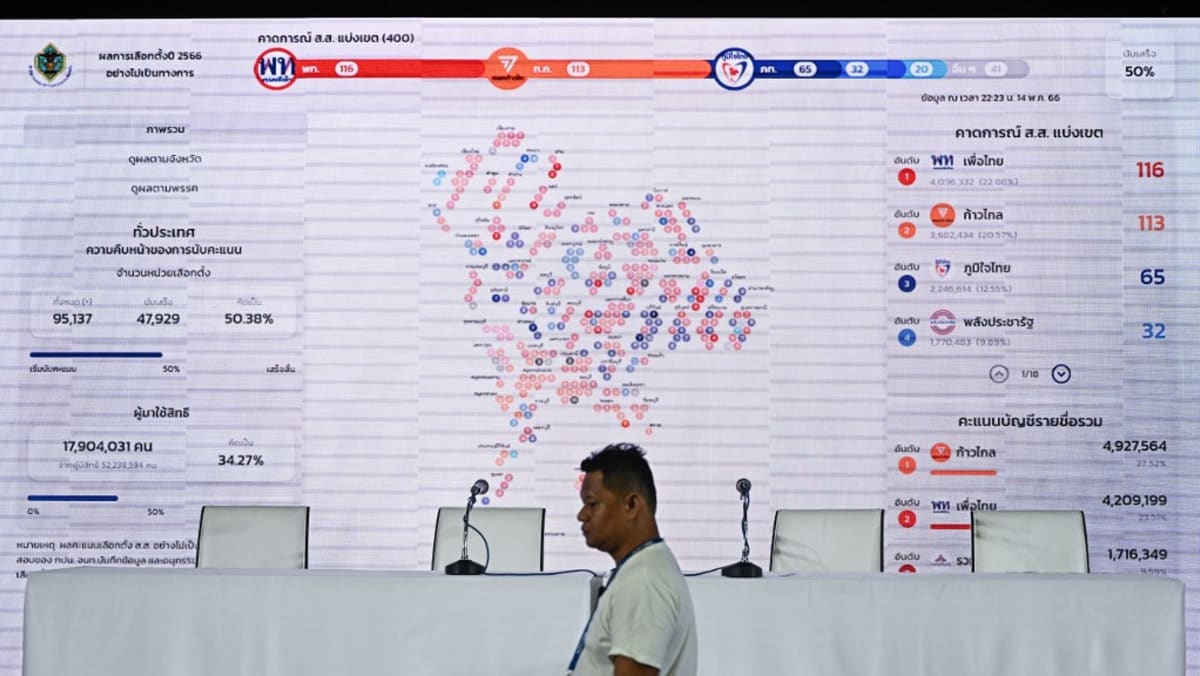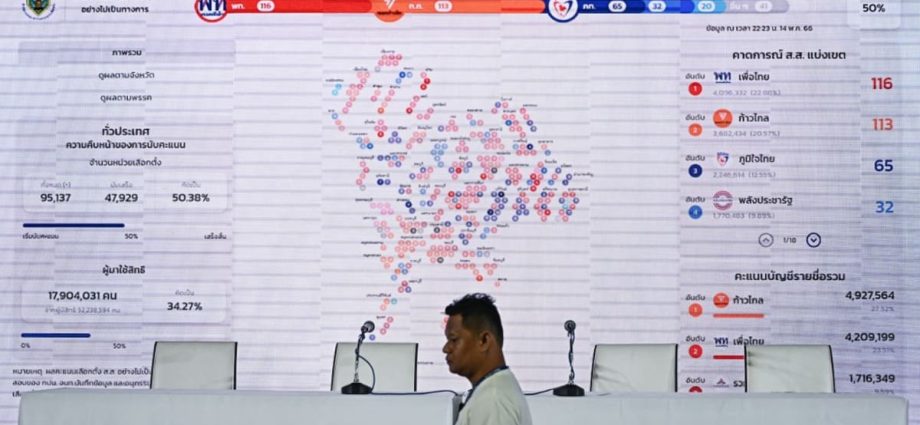
ROAD TO THE PREMIERSHIP
About 52 million people were eligible to vote on Sunday to elect 500 members of the House of Representatives – the lower house of parliament. More than 2 million of them had already cast their ballots in advance voting on May 7.
Of the 500 seats in the Lower House, 400 come from constituency elections. The other 100 come from the national party lists – a type of proportional representation where multiple candidates are elected from a list prepared by their respective parties, based on the total votes the party receives.
Each voter had to cast two ballots – one for the constituency and the other for the party list. There were more than 95,000 polling units nationwide.
There is still uncertainty as to which party will get to form the government and who will win the premiership.
Under the current constitution, the selection of the prime minister involves both the House of Representatives and the 250-member Senate – the upper house of parliament.
A prospective prime minister must be approved by more than half of the combined assembly. This means either Pheu Thai or Move Forward needs to garner at least 376 votes – either from both Houses or only from the Lower House’s 500 members – in order for its candidate to win the premiership and form the government.
The senators were selected and appointed in 2019 by the National Council for Peace and Order (NCPO) – the military government led by Prayut after his coup d’etat toppled a democratically elected government in 2014.
Following the previous general election in 2019, all but one senator – Senate speaker Pornpetch Wichitchonchai – voted for Prayut’s premiership.
Although his then party Palang Pracharat failed to win the most seats in the Lower House, it managed to consolidate enough votes from its allies to form the government.
The Pheu Thai Party, meanwhile, won the most number of seats in the Lower House at that time but was unable to form a coalition to govern the country.
The forming of the government can take time, as seen in past elections.

